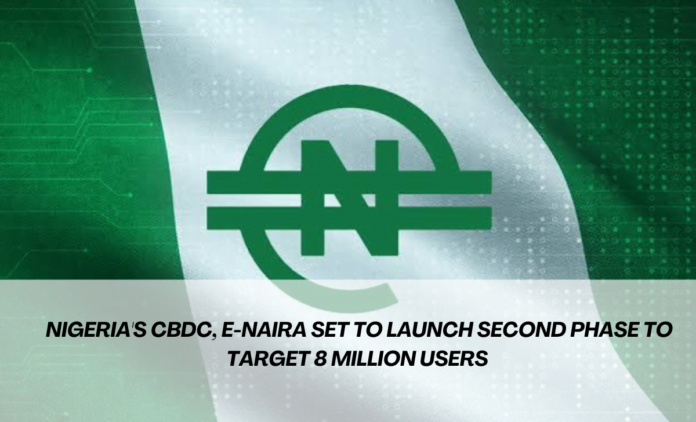Nigeria’s central bank digital currency (CBDC), the eNaira is set for the second phase of expansion as the Central Bank of Nigeria records transactions worth $9.3 million since its inception.
eNaira – Helping the Unbanked Make Fast Transactions
In October 2021, the Central Bank of Nigeria introduced its own CBDC, the eNaira — becoming the second country to launch a CBDC after the Bahamas a year earlier. There were concerns about its success after its launch due to issues around the ban of crypto transactions imposed by the apex bank. However, in a speech at the 2022 eNaira Hackathon, Central Bank of Nigeria (CBN) Governor Godwin Emefiele stated that the eNaira app has been downloaded 840,000 times and now has about 270,000 active wallets.
He stated that these figures were remarkable and that the apex bank is set to start the second phase of the project. The second stage aims to drive final inclusion by onboarding the unbanked with a target of eight million active users. It is estimated that about 40% of the total population does not have a bank account including 59 million unbanked adults. The CBN intends to tackle this issue using the eNaira platform.
Financial Inclusion and Fast Remittances
The eNaira is a liability of the CBN that users can win in their digital wallets and use for financial transactions. It can be transferred to anyone around the world who has an eNaira wallet. However, unlike other cryptocurrencies, there are some differences in how the eNaira is used. First, the central bank has implemented strict access rights constraints for the digital currency. Second, unlike these crypto-assets, the eNaira derives its value from the actual naira, to which it is tethered at parity, rather than being a financial asset in and of itself.
The CBN claims that the eNaira is projected to bring about several advantages, all of which should progressively come to pass as the currency gains acceptance and is backed by a strong regulatory framework.
One of such benefits is financial inclusion. Although the eNaira is now only available to those with bank accounts, there are plans to make it available to anyone with a mobile phone, including those without a bank account. The Central Bank is set to implement the Unstructured Supplementary (USSD) code as part of its plans to make the eNaira available for all social classes — including those without a smartphone.
Nigeria is one of the major recipients of remittances in sub-Saharan Africa. These transactions are frequently carried out using international money transfer services (like Western Union), with fees varying from 1% to 5% of the transaction’s value. The apex bank designs the eNaira to reduce the cost of remittance transfers, making it simpler for Nigerians living abroad to send money home by purchasing eNaira from foreign money transfer companies and sending it to recipients in Nigeria via free wallet-to-wallet transfers. The incentives for utilizing eNaira wallets to transmit remittances would be improved by exchange rate changes, such as a uniform market-clearing rate, that narrows the gap between official and parallel market currency rates.
There are many features the Nigerian CBDC aims to include to make financial transactions easy for its citizens. These features produce benefits such as rapid financial inclusion, cheaper transaction fees, improved tax collection, better international commerce and remittances, and improved economic growth.


